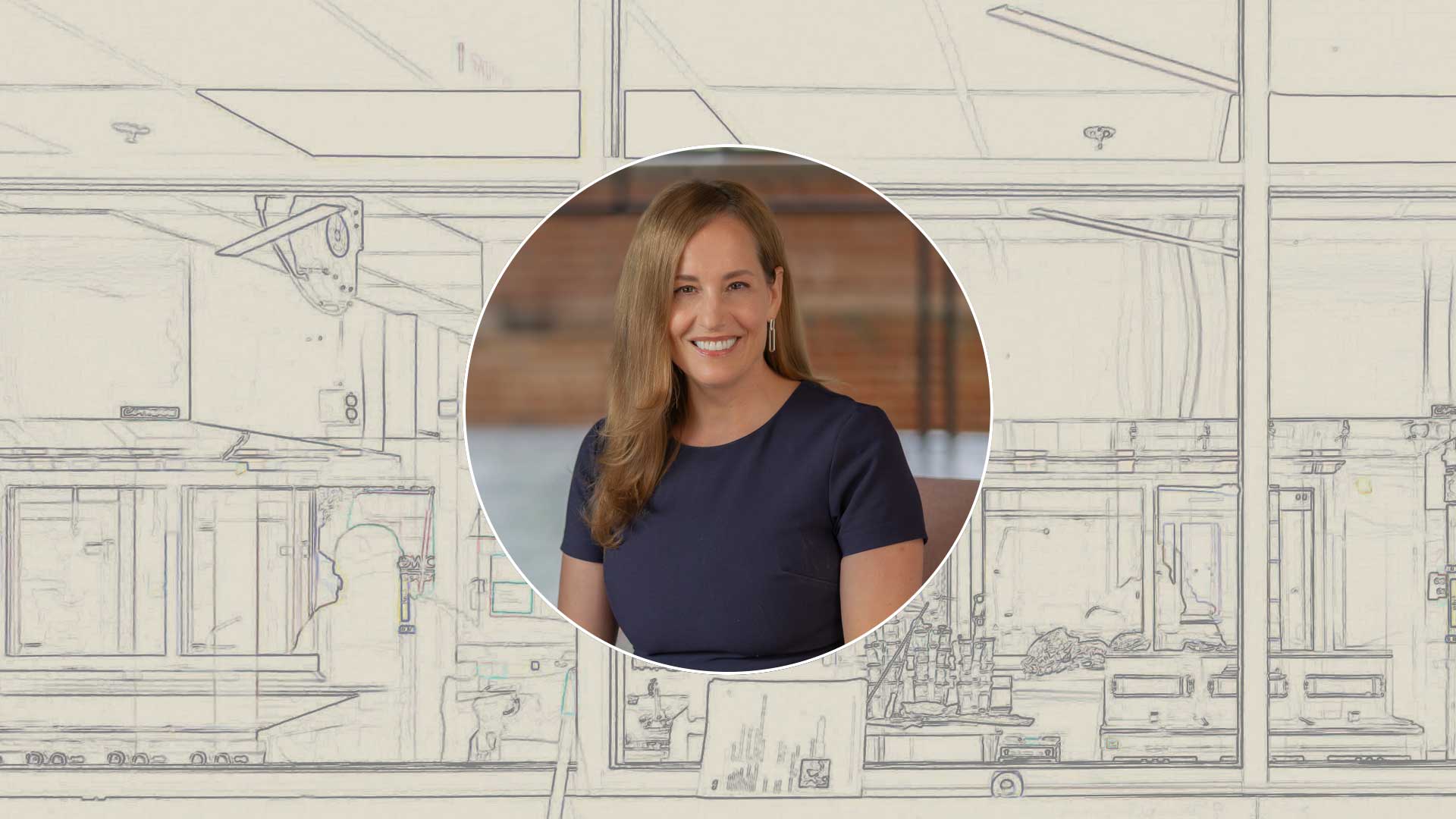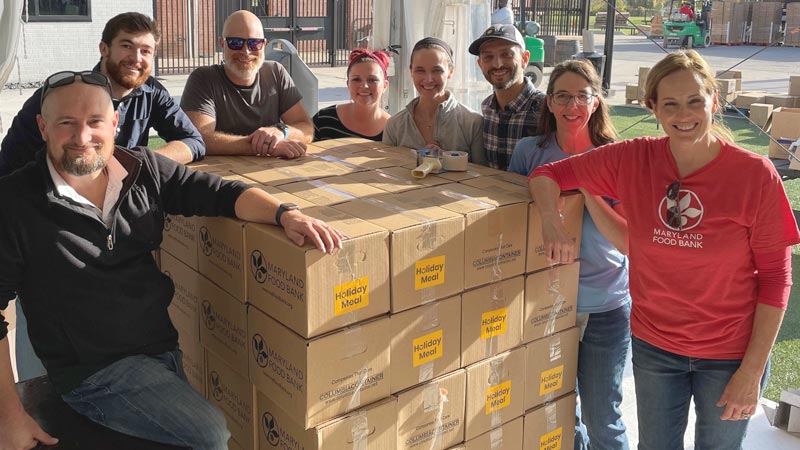Constructing Questions with Terry Squyres

Earlier this summer, Terry Squyres was named the Maryland Food Bank’s new Board Chair after serving on MFB’s Board of Directors since 2019. Terry is a Senior Principal at GWWO Architects, an award-winning architectural design firm specializing in cultural and educational facilities.
During the food bank’s recent expansion, we were fortunate to be able to lean on Terry’s expertise and knowledge when she served as MFB’s project advisor. She recently sat down with us to offer a behind-the-scenes peek at this project.
Expansion Project Answers, Constructed by Terry Squyres
QUESTION: How does the construction project support MFB 3.0?
TERRY SQUYRES: Initially, this project was meant to focus on expanding enrollment capacity for MFB’s FoodWorks program. But during design, we realized this project provided an imperative and synergetic opportunity to invest in vital infrastructure. The new architecture will facilitate MFB’s organization-wide effort to implement MFB 3.0 with spaces designed to foster collaboration and inspire MFB’s remarkably talented, capable, and creative staff, while also enhancing operational efficiency and significantly increasing our production capacity.
Q: Can you share how you got involved in volunteering your time to help with MFB’s expansion?
TS: It must have been fate that caused my first year on the Board to coincide with MFB’s initial planning stages for this project. It was my pleasure and honor to be able to offer my career experience to serve as MFB’s project advisor, engaging with Carmen and the project leadership team to balance the design, construction, and operational needs as we all worked together to achieve MFB’s short and long-term goals.
Q: What are some of the challenges MFB encountered during this project?
TS: It’s ironic that MFB embarked on this project at a time where the economy generated both intensified need for the teaching, learning, and meal production capabilities the new facilities will provide, and at the same time, went through one of the most difficult eras for construction I’ve seen. Impacts of the pandemic included a substantial reduction of global manufacturing and production of building materials, and dramatic price inflation, increasing costs of some materials by over 100%.
Q: How have those challenges stressed MFB’s staff, resources, and capabilities?
TS: MFB’s entire staff, none more so than the staff and volunteers who produce and distribute more than 1,800 meals daily for schoolchildren, has endured seemingly insurmountable operational challenges during this construction process and has done so with astounding grace and tenacity. The project’s top challenge has been ensuring MFB’s full daily operations can continue even while intertwined with ongoing construction.

Get updates on our progress in the fight against hunger
Want to see how your involvement directly impacts the well-being of your neighbors in need? Get the latest news sent to your inbox.







